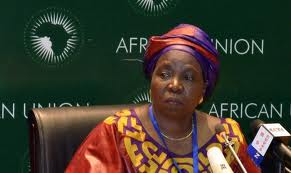Rights bodies petition AU chief over Hybrid Court for S. Sudan
November 1, 2016 (JUBA) – The African Union Commission (AUC) should prepare a draft statute for the Hybrid Court for South Sudan (HCSS) in consultation with relevant stakeholders and ensure that it is enacted through appropriate legal processes as soon as possible, various rights groups said in an open letter to the continental body.

“We, the undersigned South Sudanese and international non-governmental organizations, write to share our thoughts with you on the way forward for the Hybrid Court for South Sudan (HCSS),” partly reads the petition addressed to the AUC chairperson, Dlamini Zuma.
It added, “We recognize the efforts made by the African Union Commission (AUC) to date, as outlined in the Draft Project Proposal for Establishment of the Hybrid Court for South Sudan.”
Last year, the AU demanded that a special court will be established to try war crimes suspects in South Sudan, a nation hit by civil war.
The move, the continental body said, was aimed at promoting an “African solution” to the violent conflict in the young nation.
An AU-initiated inquiry in to the conflict also found that both government and rebel forces committed widespread atrocities.
The formation of the Hybrid Court is part of the peace agreement South Sudan President Salva Kiir and rebel leader Riek Machar signed following intense diplomatic pressure from regional leaders
All the parties to the peace deal, however, formally committed to the establishment of the HCSS “by the AUC to investigate and prosecute individuals bearing criminal responsibility for violations of international law and/or applicable South Sudanese law committed from 15 December 2013 through the end of the transitional period.”
“We would encourage the AUC to solicit input from South Sudanese stakeholders and individuals with technical expertise on the inner workings of international and hybrid tribunals. In addition to providing specific details relating to the court’s location and jurisdiction, the statute should also address matters such as victim and witness protection, public outreach, and the participation of South Sudanese judges and staff,” further reads the open letter to Zuma.
The draft statute, it adds, could be shared with interested parties for input prior to its adoption through appropriate legal mechanisms.
“Once the statute is adopted, the HCSS will then be in a position to recruit staff and develop its Rules of Procedure and Evidence, again with input from relevant stakeholders, so that it becomes fully operational in a timely manner,” says the letter.
Tens of thousands of people have been killed and over two million displaced in South Sudan’s worst-ever outbreak of violence since it seceded from Sudan in 2011.
(ST)
